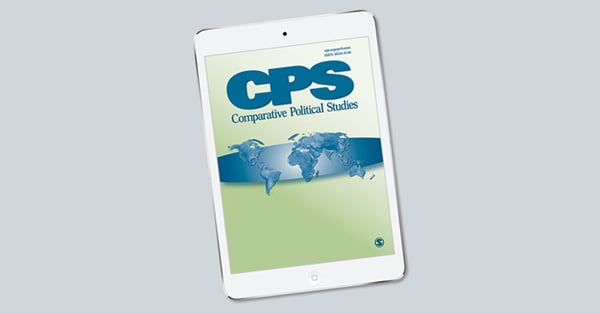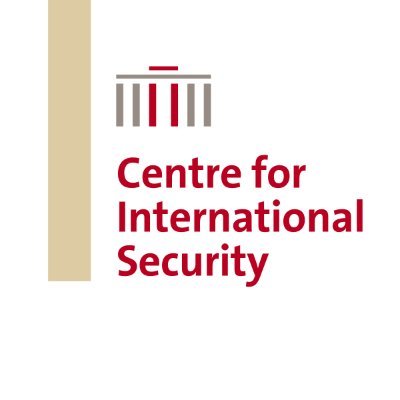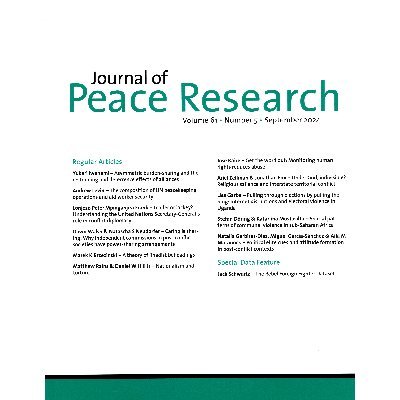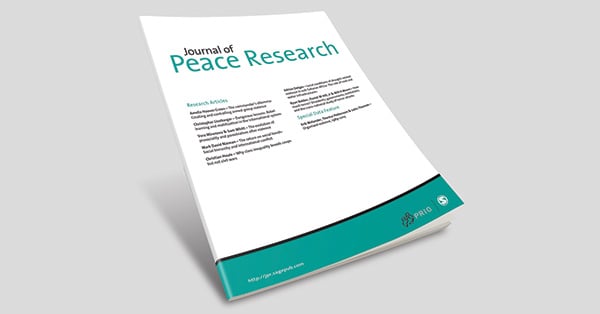
Lisa Garbe
@LaserGabi
Followers
374
Following
188
Media
13
Statuses
242
Internet access and censorship in Africa #ICT #CSR @WZB_Berlin, previously @HSGStGallen | views are my own | PGP 15927BCE71DCF9BF
Joined March 2013
TL;DR: Reactions to #eID are positive, but... 1️⃣ Direct exclusion—Marginalized groups may opt out. 2️⃣ Indirect exclusion—Surveillance concerns may deter opposition groups from political engagement. (9/9)
1
0
1
Generate videos in just a few seconds. Try Grok Imagine, free for a limited time.
550
643
4K
Qualitative interviews show marginalized groups are hopeful that #eID can reduce everyday discrimination in face-to-face interactions, despite concerns about surveillance. (8/9)
1
0
0
2️⃣Opposition group members (Luo) are more worried about surveillance and how it might affect political participation. They’re cautious about its potential consequences. (7/9)
1
0
1
Some Findings: 1️⃣Citizens are largely positive about eID, even with potential surveillance risks. But—marginalized Somali-Kenyans are less supportiveof surveillance features. (6/9)
1
1
1
We ran an in-person survey of 2,000+ Kenyans from various ethnic groups. In a policy conjoint experiment, we tested reactions to the potential benefits and risks of eID. (5/9)
1
0
0
2️⃣But eID expands state surveillance, which raises concerns in many Global South countries with ethnic and religious divisions. Marginalized groups may be less likely to sign up due to skepticism. (4/9)
1
0
0
There are two main aspects of #eID’s effect on state capacity: 1️⃣ Governments claim eID will improve access to services (like pensions), helping to reduce inequalities. (3/9)
1
0
0
In the last decades, many governments introduced #DigitalID systems to make populations more legible. By 2022 at least 🌍 120 countries had biometric passports 💳 70 countries had biometric eID cards But do these systems reduce inequality? (2/9)
1
0
0
🚨 New paper alert 🚨 Excited to share our work with @nmcmurry, @alex_scacco, and Kelly Zhang in @cps_journal: Who Wants to be Legible? Digitalization and Intergroup Inequality in Kenya We explore if #DigitalID worsens political inequality. See here: https://t.co/IMwUftR5eH (1/9)
journals.sagepub.com
Governments across the Global South have begun introducing biometric IDs (eIDs) in an attempt to improve citizen-state legibility. While such initiatives can im...
2
12
38
📢 Interested in how online censorship influences offline protests? Join us for @LaserGabi's talk at @Hertie_Security. Dive into the dynamics of digital policy and its real-world impact. 📆 Thursday, 30.11.2023 | 12:30 pm - 1:30 pm (CET) Register 👇 https://t.co/ne4a6tDydv
hertie-school.org
Lisa Garbe, Postdoctoral Research Fellow at the Berlin Social Science Center (WZB), presents her research on the consequences of sudden restrictions on internet access for mobilization.
0
1
4
🎉Its official! 🎉 We have received funding from @HorizonEU to research authoritarian state's suppression of information as a part of their foreign policy and towards diasporas in Europe. ARM: The long arm of authoritarian states. 1/3
cmi.no
How do authoritarian states try to control information beyond their borders? CMI’s new EU Horizon project explores how auth...
3
6
29
Internet disruptions are increasingly used as a strategic tool to perpetrate human rights violations in authoritarian elections. A study by WZB researcher Lisa Garbe (@LaserGabi) on Internet disruptions and electoral violence in Uganda @JPR_journal 👇 https://t.co/BcjekGjQhV
0
3
6
#InternetShutdowns to silence protests are a tactic increasingly used by governments. WZB researcher @LaserGabi explains how shutdowns work technically and how they can be circumvented and detected in @ConversationUK. @accessnow @maqartan @Info_Activism
https://t.co/pOVd0vDZoA
theconversation.com
There are different tactics that governments can use to block the internet, some more sophisticated than others.
1
3
6
Does increasing Internet access & use challenge authoritarian elections? @LaserGabi examines this question by focusing on Uganda’s 2016 presidential elections. The author uses evidence from election monitoring & survey data, complemented by interviews.
1
5
13
0
0
2
Take-away: even if shutdowns are nation-wide they may discriminate against specific populations that try to challenge electoral malpratice (4/5)
1
0
2
Insights from qualitative interviews suggest that the shutdown specifically hindered opposition supporters to challenge electoral malpractice (3/5)
1
0
2
Using election monitoring and survey data from Uganda's 2016 elections, I show that electoral violence is significantly higher in opposition strongholds with greater internet access prior to the shutdown (2/5)
1
0
2
Happy to see this paper out in @JPR_journal 😊 https://t.co/3kT5nrbUUk Given the increasing amount of #InternetShutdowns during #African elections in recent years, I ask the question: how do internet shutdowns shape electoral conduct? (1/5)
journals.sagepub.com
Does increasing Internet access and use challenge authoritarian elections? I argue that Internet access provides both opposition supporters and government autho...
3
12
43













